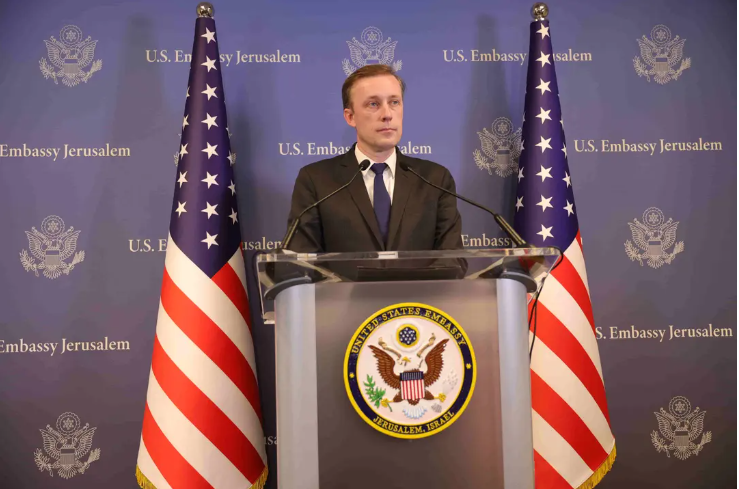The Palestinian Authority Announces Reforms
Palestinian Prime Minister Mohammad Shtayyeh said on Monday that the Palestinian Authority (PA), which partially governs the West Bank, would undergo a series of reforms that would affect the PA's 'judicial, security, administrative and financial structures,' as well as appoint several governors ...
Facts
- Palestinian Prime Minister Mohammad Shtayyeh said on Monday that the Palestinian Authority (PA), which partially governs the West Bank, would undergo a series of reforms that would affect the PA's 'judicial, security, administrative and financial structures,' as well as appoint several governors and ambassadors to positions left vacant for months. The announcement comes two weeks after US Secretary of State Antony Blinken said the PA was committed to reforms so that the West Bank and Gaza could be united under its leadership.1
- The announcement also comes after it was reported on Monday that the PA, Saudi Arabia, Egypt, and Jordan met secretly around a week ago in Riyadh to discuss a 'renewed Palestinian Authority' that would be able to administer Gaza after the war, potentially including the transfer of certain powers from Pres. Mahmoud Abbas to a new prime minister to be appointed.2
- Palestinian Deputy Prime Minister Nabil Abu Rudeineh said on Saturday that the PA would step aside if Hamas won any future Palestinian elections, citing the necessity of finding common ground and formulating a unified position among Palestinians. The last Palestinian elections were held in 2006 in which Hamas won a majority of the seats in the legislative council.3
- Complicating the discussion of Gaza's post-war future, elements of the country's coalition government and cabinet have shown a desire to resettle the Gaza Strip. In response, Israeli Defense Secretary Yoav Gallant said on Monday that Israel would not allow settlements to be rebuilt in Gaza. Gallant also reportedly told the US Ambassador that Israel would establish a 1-km temporary buffer zone in Gaza for security purposes.4
- In response to several countries suspending their funding for the UN agency for Palestinian refugees, UNRWA over Israeli allegations that some of its members are active Hamas Islamic Jihad operatives, the agency said on Monday that it is 'extremely desperate.' A spokesperson for the agency said that if funding was not resumed, the agency would not be able to continue functioning beyond the end of February.5
- Gaza's health ministry reports that the conflict has killed over 26K people in the Gaza Strip, the majority of whom were women and children. The war has also created a rapidly deteriorating humanitarian situation in the strip. The official Israeli death toll on Oct. 7 stands at around 1.2K people (and there are still over 100 hostages being held in the Gaza Strip).6
Sources: 1The National, 2Jerusalem Post, 3The Times of Israel, 4FOX News, 5BBC News and 6Associated Press.
Narratives
- Pro-establishment narrative, as provided by Voice of America. Though it must go through many changes beforehand, the only viable Palestinian political entity capable of governing Gaza after the war is Mahmoud Abbas's Palestinian Authority. Everyone can agree that the PA has many issues that must be urgently fixed, namely its corruption and Abbas's weakness. Nonetheless, Israel cannot reoccupy the Gaza Strip, as this is both logistically and morally out of the question, and a revitalized PA will have to be created to take over Gaza's civil administration at the very least.
- Pro-Israel narrative, as provided by JNS. Though the US may believe that it can force the PA to 'reform,' the reality is the PA is simply not a partner for peace. Like Hamas, the PA supports the destruction of Israel, teaches Palestinians to hate, and lacks democratic legitimacy. The PA would be incapable of demilitarizing Gaza or deradicalizing its population, meaning that the chance that an attack like Oct. 7 could happen again remains. Indeed, Israel may as well let Hamas stay in power if it is truly considering allowing the PA to take over Gaza the day after the war.
- Pro-Palestine narrative, as provided by Intercept. The great irony of the debate regarding the PA is that Palestinians, especially in the occupied West Bank, by and large, see the political body as an extension of Israel's occupation. The PA functions as a contractor for the occupation, deploying its security forces to contain Palestinian resistance. Mahmoud Abbas and his lame-duck administration in the West Bank are deeply unpopular. The US must realize that it cannot force Palestinians to support the PA, and it will have to be more creative if it wants to set the necessary conditions to end this conflict.







